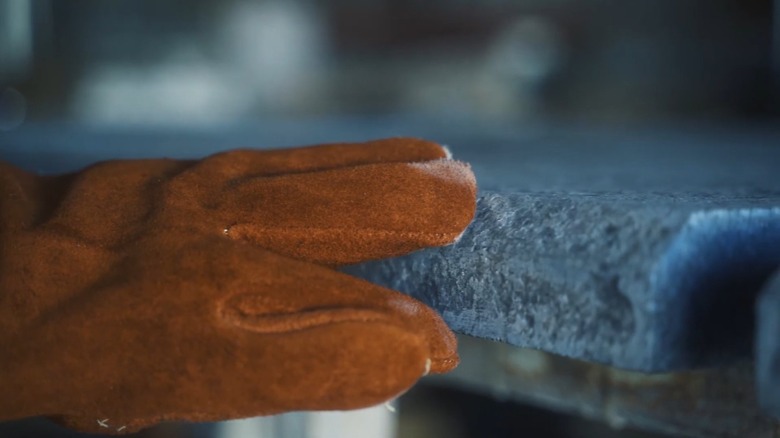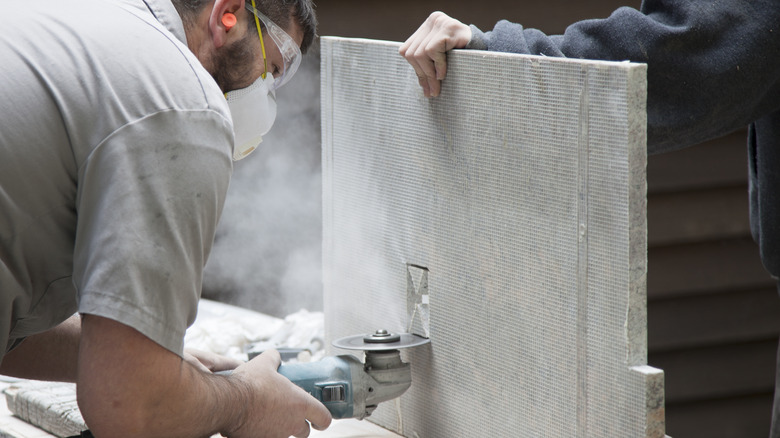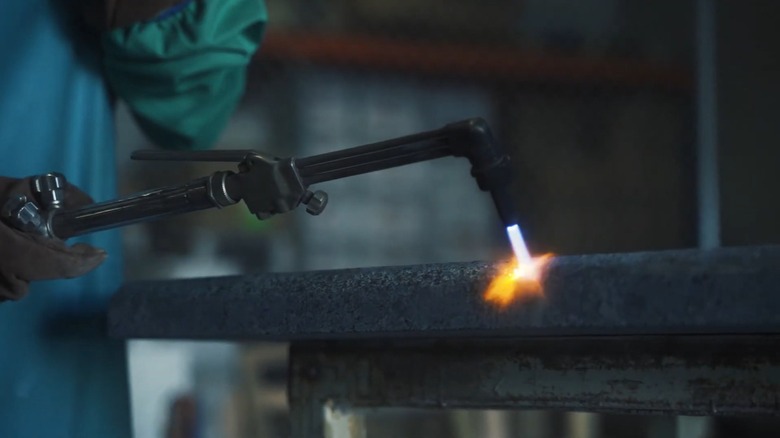What Makes Flamed Granite Countertops Different?
Your kitchen countertop faces multiple stressors, including heat from cooking, potential scratches from knives and utensils, spills from liquids like oils and acids, and the weight of heavy pots and appliances. For this reason, a durable kitchen countertop is vital, and this is where flamed granite comes in. It's an excellent choice for a contemporary countertop design since it stands out for its exceptional texture and resilience. This distinct type of granite is treated with a unique flaming process where it is exposed to a high-intensity flame. The intense heat causes the grains in the stone to burst, resulting in a distinct, roughened surface.
This textural transformation elevates the stone's aesthetic and bolsters its physical properties, enhancing its suitability for various applications. In contrast to their polished counterparts, flamed granite countertops exhibit a rugged finish, adding a touch of natural elegance and tactile richness to any space. Their distinct characteristics range from resisting wear and tear to maintaining beauty in harsh environmental conditions indoors and outdoors. These qualities are pivotal in determining its appropriateness for a project.
Delving into the various elements that distinguish flamed granite from other natural stone options involves appreciating the material's benefits and possible limitations. Its superior durability and increased slip resistance make it an attractive choice. However, it's equally important to consider its maintenance needs and how it adapts to various environments.
Durability and slip resistance
Flamed granite is ideal for areas in your home that are either prone to moisture and dampness or require robust countertop solutions. It can easily adapt to various room settings, working well for your kitchen floors or as a statement piece outdoors. The unique flamed finish also provides increased slip resistance, which makes it a much safer option if your kitchen is always in use. Additionally, this textured finish enhances the stone's durability against environmental factors, making flamed granite an excellent choice for outside use. The stone's ability to retain its natural color and composition, even with continuous exposure to sunlight, is a significant advantage for outdoor installations.
The aesthetic appeal of flamed granite is another noteworthy aspect. Its natural, rugged charm adds a unique touch to any setting, blending with contemporary and classic design themes. This enduring vibrancy is not always found in other materials, which may fade or lose their luster over time. Overall, these characteristics make flamed granite a superior alternative to traditional polished granite, which, while popular, doesn't offer the same level of durability when used in high-moisture areas.
Porosity and sealing
Flamed granite has certain drawbacks due to its increased porosity following the heating process. This heavy porosity makes the stone more likely to absorb liquids, leading to potential staining and moisture retention. It is, therefore, critical to seal flamed granite surfaces appropriately to preserve both their beauty and functionality. This will involve applying a protective layer that fills the stone's pores, creating a barrier against potential spills, stains, and moisture. This process is vital for maintaining the stone's natural appearance and preventing the accumulation of dirt and bacteria on its textured surface. Consistent upkeep of granite countertops is also crucial. This may depend on how often you use the countertop surface and environmental exposure.
Beyond the need for regular sealing, flamed granite presents other challenges. One notable downside is the difficulty in cleaning its textured surface. The roughness that gives flamed granite its unique character can also trap dirt and debris more readily than smoother, polished surfaces. This can make routine cleaning more labor-intensive, requiring extra effort to dislodge particles from the crevices of the stone. Additionally, flamed granite is durable but can be prone to staining and fungal buildup. This is mainly a concern in areas like the kitchen, where high humidity levels are expected. Regular cleaning and proper ventilation are necessary to mitigate this issue, adding to the overall maintenance effort.


